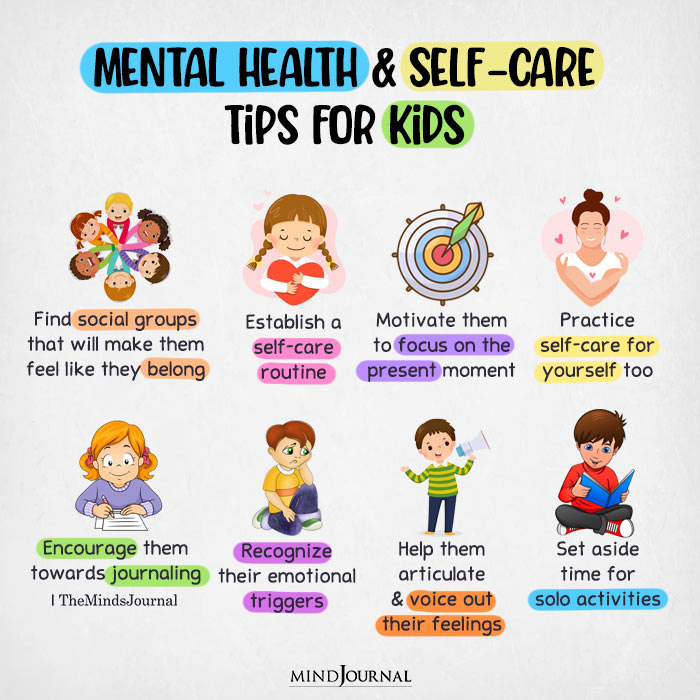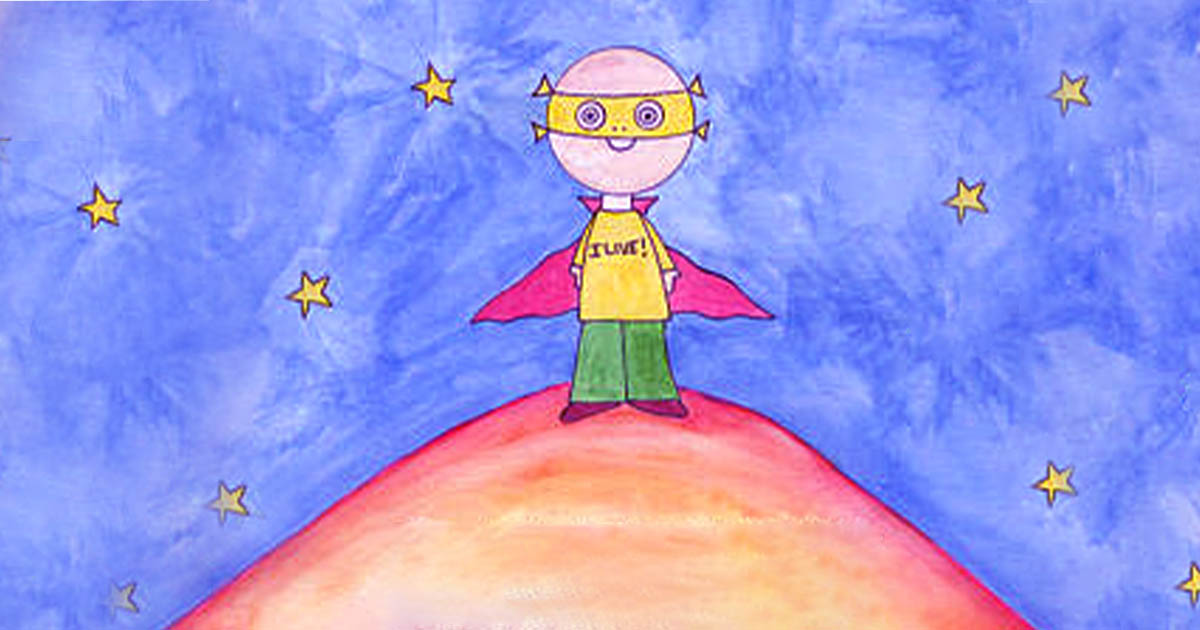Safeguarding the mental well-being of our children is a top priority for all parents. To equip you with the best tools for this crucial task, we’ve curated a compelling list of 5 Mind-Blowing Mental Health Tips for Kids.
These practical strategies are designed to foster a resilient and positive mindset in your children, laying the foundation for their emotional well-being. Additionally, we will also learn the importance of mental health tips for children and how can parents support children’s mental health.
Importance of Children’s Mental Health
Childhood mental disorders are a significant concern affecting a wide spectrum of children, irrespective of their age, gender, or ethnic and racial backgrounds. Mental health isn’t a secondary concern—it’s integral to overall health.

Moreover, the stigma associated with mental disorders can perpetuate the cycle of suffering, making it even more critical to address this issue with understanding, compassion, and appropriate care.
So, what can we do? Early intervention, access to mental health services, and the creation of nurturing and supportive environments are pivotal. Reducing the stigma surrounding mental health tips for children and increasing awareness can bring about significant positive change for children and their families.
Read More: Why Is Mental Health Awareness Important? 10 Tips To Promote
Talking about children’s mental health is not a choice but a necessity. Mental and physical health are closely intertwined, and we must recognize this at an early age. Discussing mental health openly helps in forming healthy habits and maintaining strong mental well-being. It’s crucial in removing the stigma associated with mental health.
Open conversations about psychiatric issues can be life-saving. They reduce suicide rates and encourage early treatment. The benefits of discussing children’s mental health far outweigh any discomfort that may arise from addressing this important topic. It’s time to break the silence and start the conversation about the mental well-being of our children.
How Can Parents Support Children’s Mental Health
The way parents raise their children can really affect how they feel and grow up. It’s important for parents to find the right balance between being caring and being too controlling.
Sometimes, parents might want to protect their kids a lot, thinking it’s a good thing. But if parents protect their kids too much, it can backfire. Kids need to face some challenges to learn how to handle stress and worries.

If they’re always protected, they might not become good at dealing with tough situations, and that could lead to them feeling anxious or worried.
Research shows if parents don’t pay enough attention to their kids or don’t show they care, it can be harmful too. Kids need love, care, and support to feel secure and happy. When they don’t get this, they might start feeling unsure about themselves and even sad.
Read More: 10 Bad Parenting Skills That Can Be Harmful For Children
However, as parent you have a massive role to play in developing your child’s mental health. The following are some of the roles that parents play in their kid’s mental health:
1. Self-Acceptance
As parents, you hold a powerful influence in nurturing your child’s self-acceptance. It’s about fostering a sense of self-worth, emphasizing that setting realistic goals and finding efficient ways to achieve them are essential life skills. By promoting self-acceptance, you empower your child to navigate challenges effectively.
2. Dealing with Emotions
Childhood and adolescence can be a whirlwind of emotions, and your role in guiding your child through this storm is vital. Encourage open conversations about feelings and emotions.
Your child should feel comfortable expressing themselves through creative outlets like art, music, or writing. These conversations provide a valuable opportunity for you to listen and offer support.
3. Building Relationships
The strength of family relationships can be a protective shield for your teenager’s mental health. Make time for your loved ones, and encourage your child to develop and maintain meaningful friendships. Teaching your child how to handle conflicts within relationships is a valuable skill that will serve them well in life.
Read More: 14 Signs A Child Is Struggling With Their Mental Health
5 Mental Health Tips for Kids
As parents, caregivers, and educators, it’s our responsibility to ensure that children receive the support and guidance they need to foster good mental health.

The following are five crucial mental health tips for children:
1. Open and Honest Communication
Effective communication is the cornerstone of good mental health in children. Encouraging children to express their thoughts, feelings, and concerns creates a safe and supportive environment where they can develop emotional intelligence and learn to manage their emotions effectively.
Children should feel secure sharing their thoughts and emotions without fear of judgment. Parents and educators can establish safe spaces where children know they will be heard and understood.
Actively listen to what children have to say. Show empathy, ask open-ended questions, and validate their feelings. By listening, adults can gain insights into children’s emotional needs and provide appropriate support.
2. Follow A Routine
Children benefit greatly from having a structured routine. When their daily lives are predictable, it can alleviate some of the stress and uncertainty they might be experiencing. Therefore, one of the key mental health tips for kids is to establish and maintain a daily routine.
Set specific times for studying, playtime, snacks, and meals. Knowing what to expect throughout the day can help children feel more in control and less anxious.

The “Brush, Book, Bed” program is a recommended bedtime routine for children, promoted by the American Academy of Pediatrics. It’s designed to establish a calming and consistent bedtime routine for kids.
Read More: What is Childhood Insomnia? Understanding 3 Alarming Causes
Research recommends the “Brush, Book, Bed” program to wind down each night. This routine not only helps children get adequate sleep but also provides a sense of comfort and security.
3. Play Time
One of the most valuable ways to support your child’s mental health is to ensure they have ample time for play. Playtime is essential for children as it allows them to express their creativity, engage their imaginations, and focus on enjoyable activities.

Ensure that your child has sufficient free time for enjoyable activities alongside their daily tasks. Let them explore their interests and engage in play that brings them joy.
Encourage your child to use play as a means of creative expression. This can include activities like drawing, building, pretending, or simply running around in the yard. Provide opportunities for unstructured play, where children can make their own choices about what to do and how to do it.
This type of play fosters independence and allows them to explore their interests!
4. Monitor Your Child’s Behavior
Another crucial aspect of supporting your child’s mental health is being vigilant for signs of distress. While every child is unique and may express their difficulties differently, there are some common signs that should prompt action.
If your child struggles to manage their emotions and frequently has outbursts of anger or sadness, it’s essential to address this issue. Children who start avoiding activities they once enjoyed may be experiencing mental distress.
Read More: 8 Expert Tips To Talk About Mental Health With Your Kids
If your child begins withdrawing from relationships with friends and family, this could be a sign of emotional difficulties. Communication is crucial in understanding the reasons behind their withdrawal.
5. Seek Professional Help
The final and perhaps the most crucial mental health tip for children is seeking professional help when you observe signs that your child may be struggling with their mental health.
Reach out to your child’s pediatrician, as they are trained to evaluate and provide guidance on children’s mental health. They can offer an initial assessment and recommend appropriate steps or interventions.

Many healthcare providers now offer telehealth services, which can be especially helpful during a crisis or when an in-person visit is not feasible.
Telehealth appointments allow you to consult with a healthcare professional remotely, ensuring that your child receives the necessary care.
Remember that reaching out to a professional is a proactive step to address your child’s mental health needs. Early intervention and appropriate guidance can make a significant difference in ensuring your child’s well-being.
A Word From Mind Family
Children’s mental health is not a secondary concern; it is an essential part of their overall health and development. Recent statistics highlight the pressing need to address this issue.
It is crucial for parents to recognize signs of mental distress in their children. These signs may manifest differently in each child. When you observe signs of mental distress in your child, do not hesitate to reach out to a healthcare professional. Your child’s pediatrician can provide initial evaluations and recommend necessary interventions.
Together, we can provide the necessary support and guidance to help them navigate life’s challenges and build a strong foundation for their mental health.
Frequently Asked Questions (FAQs)
1. How to improve my kid’s mental health?
Improving your child’s mental health involves open communication, a structured daily routine, encouraging playtime, monitoring behavior for signs of distress, and seeking professional help when needed.
How can parents support children’s mental health?
Parents can support their children’s mental health by fostering self-acceptance, open communication, strong relationships, structured routines, ample playtime, and monitoring for signs of distress.
3. What are some mental health tips for children?
Tips to improve a child’s mental health include communication, routines, playtime, behavior monitoring, and seeking professional help when necessary.











